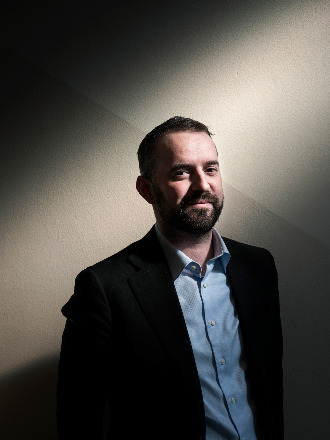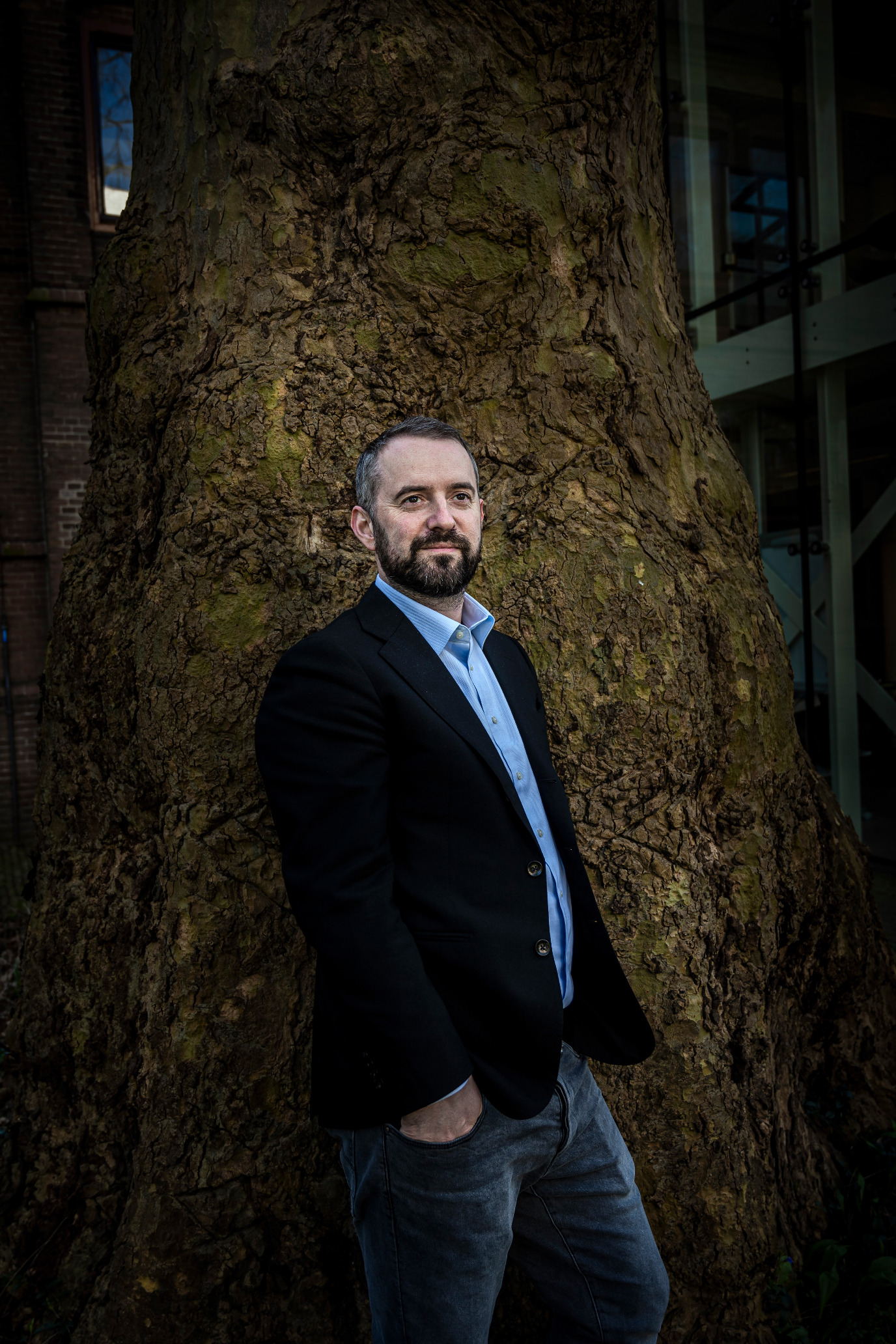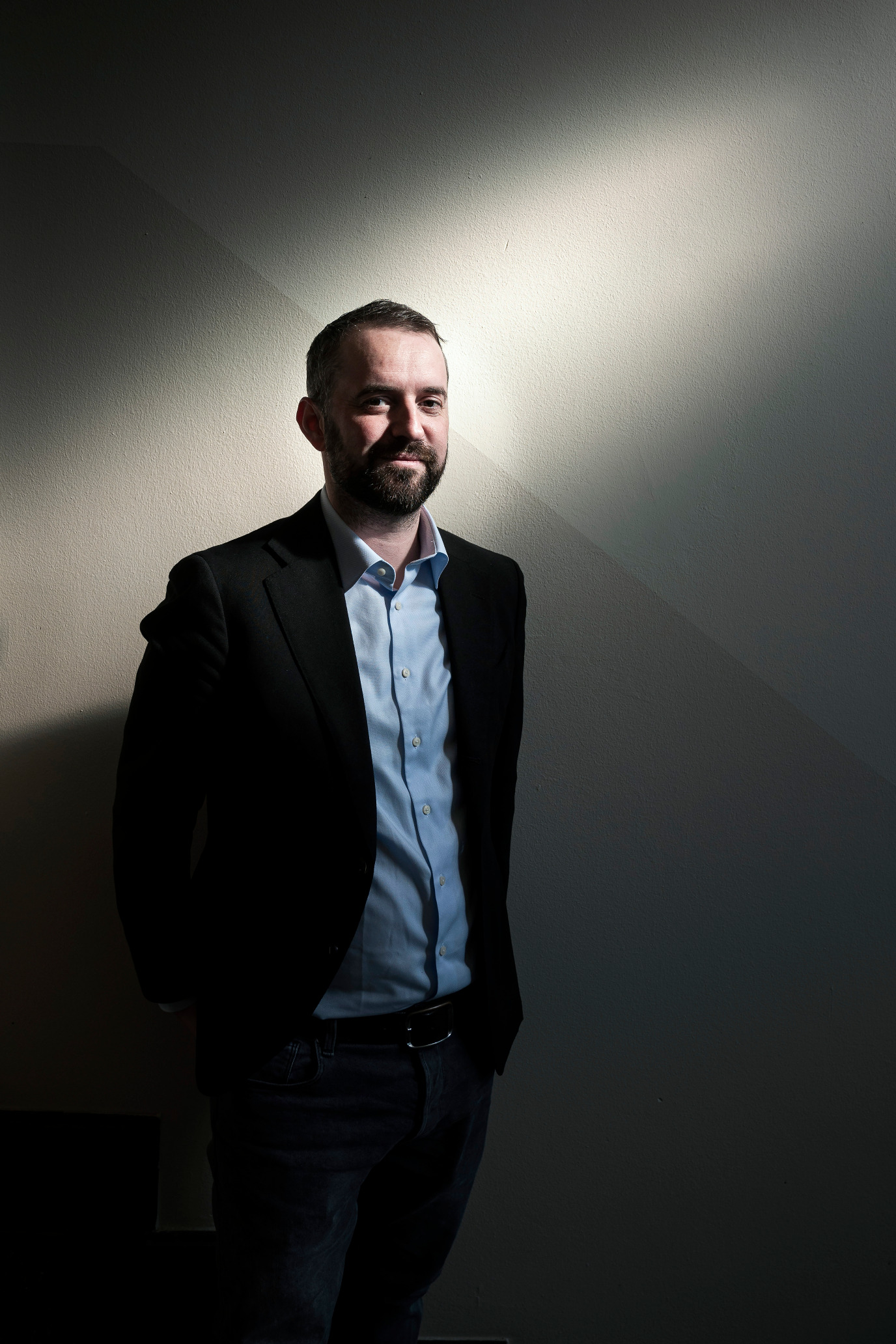Sociology alumnus Jimmy Dijk: "I prefer Groningen over the Hague's cheese dome"

About twenty years ago, Jimmy Dijk (1985) studied sociology. Recently, he succeeded Lilian Marijnissen as the leader of the SP (Socialist Party). Dijk reflects on his student days where his deep-rooted love for politics, books, and the city of Groningen emerged.
A year ago, Jimmy Dijk traded his place in the Groningen city council for the Dutch Parliament. Despite the significant distance of 235 kilometers between The Hague and Groningen, Dijk has no plans to move to the Hague. "I sleep there a few nights a week and I'm always happy when I drive back to Groningen. Then I think: finally, we're heading in the right direction: to the most beautiful city in the Netherlands. And I mean that both in terms of physical beauty and in tranquility. It's less hectic here than in the Randstad."
Not a social worker
Dijk, originally from the Groningen village of Oldenzijl, moved to the city of Groningen at the age of eighteen to study Social Educational Care. He quickly realized that this study didn't quite meet his expectations. "I just noticed that I'm not a social worker." Captivated by the problems he saw during his internship as a youth worker in the neighborhoods of Paddepoel, Selwerd, and Tuinwijk, Dijk decided to study sociology. "My reasoning was that you can also improve the problems in those neighborhoods through policy."

Professional pride
Fortunately, sociology turned out to be a better match. "I found it an incredibly enjoyable study and I benefited a lot from it. Actually, I found all subjects interesting, but particularly the subjects about the role of labor in our society. I liked Labor Sociology by Arie Glebbeek the most. That also, perhaps not very surprisingly, had to do with the theme. And in the second year, I did a Project Education under Rie Bosman. That was about the professional pride of teachers. I also found that very enjoyable because it involved that element of work. That is perhaps the most important thing for me and other socialists: the way people do their work."
Nose in the books
The young Dijk turns out to not be very fond of lectures. "I learned easily, but let's say I wasn't a disciplined attendee of lectures." Dijk prefers to be at home or in the library with his nose in books. "I read a lot. I think during my studies I read more economic books than sociological ones. At that time, the human image in economics was very one-dimensional: the human is a rational being, a homo economicus. There's so much wrong with that. Nowadays, thankfully, there's more criticism of this human image, which I find very cool."
Night owl
Dijk is still an avid reader. "My girlfriend sometimes complains about the boxes of books lying around everywhere in the house. I often read at night. I start late in the evening and I really have to force myself to put my book down, but I can't always do it. Then I can't stop. If I then appear somewhere the next day tired with heavy bags under my eyes, I often get asked: couldn't you put your book down again?" Dijk prefers non-fiction. He doesn't have a favorite book. Reflecting, he says, "Hmm... Tough... The last book I got really excited about is 'Muiterij Muiterij’ (Rebellion) by Peter Mertens. He has really written a very good book about the development of the world economy and the adverse effects of globalization."
Red jackets
Already in the first year of his sociology studies, Dijk became politically active. "I didn't want to just bury my nose in books, but also do something directly to improve the problems in neighborhoods. In those same neighborhoods where I did youth work, I saw people with red jackets going door-to-door. They talked with residents about, for example, the state of their housing. There was a certain enthusiasm in that. That, combined with Jan Marijnissen's impressive analyses on TV, led me to join the SP when I was 19."
Upbringing
Dijk says he often gets asked whether he comes from a "red nest." "Nobody in my family was a member of a political party. But of course, later you realize that you do pick up things from your parents. For example, from my father who was a furniture maker, I heard stories about how guest workers were brought to the Netherlands and treated very poorly, both in housing and in employment conditions and wages. From my French mother, I learned about class struggle. That was more alive in France. Also, protests were more common there than in the Netherlands, where it was more about compromise."

Street fighter
In Dijk's family, there were often discussions around the table in the evenings. "About politics, religion, and income. Subjects you'd rather not discuss with your in-laws or visitors. Those were the very topics we discussed. And in a quite robust manner." That "robust manner" of debating still characterizes Dijk. It even earned him the nickname 'street fighter.' Dijk laughs apologetically: "You can't deny that I have a certain debating style that you could indeed describe like that. Of course, there are more layers to me. But if during election campaigns it's all about job security and promises aren't fulfilled afterward, then you can expect that to be exposed and torn apart."
Tap beers
Even though Dijk now spends a large part of his time in The Hague, he still finds it important to stay in touch with 'the ordinary man.' "We remain the party of those red jackets and we talk a lot with people in neighborhoods and on the work floor. That's still expected of me and I find it the most educational part of my whole work." Dijk focuses mainly on young people. "With our youth organization, I'm going on tour throughout the country soon. We're going to do a pub crawl." Dijk laughs, "That wasn't my idea! During my time in Groningen, I worked a lot in a café and behind the bar. During the tour, I'll be tapping beers while the young people can talk to me."
The Hague's cheese dome
While Dijk continues his political path in The Hague, he remains firmly rooted in his beloved Groningen. "I've said: the party can ask anything of me, but I'm not moving. In Groningen, I have my social life. But because I live here, I also have to regularly get out from under that Hague cheese dome. That feels healthy." With a smile, he adds, "If I may give one piece of advice to the students who might be reading this: stay in Groningen!"
More news
-
08 December 2025
Citizen participation essential for a sustainable energy future
-
23 October 2025
Nine UG researchers awarded Vidi grant


